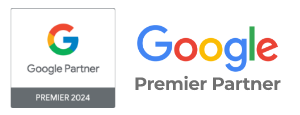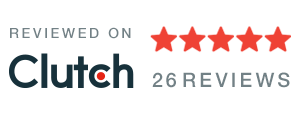The big question on everyone’s minds: Will AI-generated content boost my website’s search engine rankings, or will it deal a fatal blow in the long run, once AI detection tools are highly accurate? The answer is yes, it will ruin your website if you use it irresponsibly.
Google has clearly stated, “When it comes to automatically generated content, our guidance has been consistent for years. Using automation—including AI—to generate content with the primary purpose of manipulating ranking in search results is a violation of our spam policies.” If website owners think they can rationalize that their AI content is not intended to manipulate rankings, yet they are expecting the content to rank, they can be making a very costly mistake.
Will AI Generated Content Go The Way of Low Quality Backlinks?
We all remember years ago when link spammers were able to game organic search rankings by creating hundreds and thousands of backlinks for a website, boosting the website’s keyword rankings, and dominating search results. Backlinks were the holy grail, and short-sighted developers promised page-one rankings and overnight success for any keywords you wanted to rank for.
It was all too good to be true… and then it was a nightmare.
Once Google was able to detect spammy links through its Penguin algorithm update, the digital world was rocked when all those sites with low quality backlinks tanked overnight… keyword rankings plummeted, leads abruptly stopped coming in, revenues dried up, businesses failed… and all the work that went into those websites went up in smoke. JC Penny was one of the high-profile victims who went from the top of organic search rankings, and then disappeared from view. All due to one algorithm update.
What’s Google’s Position on AI Generated Content?
While Google has not come out and said you should not use AI generated content, they have stated clearly that they reward original, high quality, relevant content that provides value to the target audience, regardless of whether it’s generated by humans or AI. Google has also stated that they will favor content that demonstrates qualities of E-E-A-T: Expertise, Experience, Authoritativeness and Trustworthiness.
E-E-A-T is not a brand-new concept; however, it is becoming even more important now in establishing trust with your audience, and also with Google. It has already been documented clearly that AI-generated content can be wrong, but it can also be purposely misleading, providing misinformation, and readers will have a hard time distinguishing factual information from well-written disinformation. Authorship and trust are becoming more important for SEO, and Google clearly states that by focusing on E-E-A-T you can attract more traffic to your website.
Can Google Recognize AI Generated Content?
The simple answer is yes. Google’s algorithms look for certain patterns and signals to identify AI-generated content. Watermarks are being added to AI-generated content in a number of ways. Unique identifiers can be embedded into the code of the content, making it easy to identify. Patterns can be readily identified making AI-generated content identifiable. In addition, there are many AI Content Identification tools already available which can tell you what percentage of a page of content has been generated by AI vs. Human, like Crossplag, Sapling, Writer, and several others. Many of these tools can tell you approximately what percentage of your copy is AI-generated vs. Human generated. As these tools get better and better, it’s not hard to imagine that Google will be able to spot AI content easily. And if that’s the case, do you want to have auto-generated content all over your website?
What is the Use of AI-Generated Content Then?
Even if you were afraid to use AI-generated content on your site for fear of being penalized, there are still many uses of AI that you can benefit from. Writers can use the AI generator for ideation, removing writer’s block and making content writing much faster. It can be used to create outlines and content strategies, do keyword research, optimize pages, and much more. There are so many ways to use ChatGPT and the technology is moving so quickly that it’s difficult to predict what new, great benefits will be available in the coming months.
Our advice… stay tuned and be judicious when using it to benefit your website in organic search.



